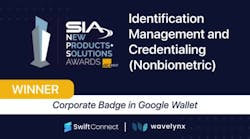Due to the busy nature of building and facility management, it is important for security personnel to have access to information about security threats from anywhere and at any time.
Many buildings already have surveillance, alarms and more in place to ensure tenant safety; however, due to the rise of technologies such as the cloud and the Internet of Things (IoT), building security systems have evolved to offer remote access monitoring capabilities so that building security personnel can log into their building’s systems from anywhere, as well as offering the ability to integrate multiple disparate building security systems.
These technologies are vastly changing the nature of building facility and security management.
The Changing Facility Management Landscape
Cloud-based building management systems are providing today’s facilities with numerous benefits, including anytime access to mass messaging, video monitoring, intrusion detection and alarms, visitor management, and building management operations – all available from one user interface.
As well as eliminating the cost and manpower involved in operating and maintaining a physical security infrastructure – including physical servers – cloud-based solutions provide a seamless way for support teams to monitor security and facility systems either onsite or remotely and even through mobile devices.
Rather than monitoring security situations from a control room, security teams can remain visible throughout the facility while they monitor real time information through their devices. This enables security professionals to make clearer decisions and provide faster responses to security issues from anywhere.
While we have been using mobile technology in our everyday lives for well over a decade, it is becoming more commonplace for security personnel to use mobile devices at their jobs; in fact, a Gartner report estimates that by 2022, 70 percent of all software interactions will occur on mobile devices.
As mobile use becomes more integrated into daily roles across multiple industries, remote access will become an even more important part of building security and management, with local teams consistently using their devices to check on different aspects of building safety and perform their jobs far more efficiently and easily than ever.
The Impact on Security Dealers and Integrators
Remote access solutions provide dealers and integrators with the ability to provide faster response times to service customer needs by enabling remote diagnostics and troubleshooting.
This also means that dealers and integrators do not always have to dispatch a technician to assess a situation, only to find out that the issue they have been called out for may have been as minimal as a person trying to gain access with a disabled or broken badge.
In addition, these remote access solutions give end-user customers a greater ability to perform day-to-day tasks remotely. Mobile devices and tablets serve as functional devices that enable customers to remain connected and active even when on the move.
But as the security landscape continues to change and remote access becomes built into nearly all security systems, how do dealers and integrators ensure that customers can understand and realize its full benefits?
To do this, dealers and integrators must ensure that their sales and service staffs are fully trained on all of the operations and benefits that remote access enables. Everyone from salespeople to technicians should be able to effectively communicate the value these solutions can add to a security system by explaining each of the benefits the technology affords security personnel in their day-to-day roles.
In addition to the immediate benefits, such as enabling remote work and monitoring, and the ability to use more IoT connected devices, customers can expect to see significant labor and cost savings as a result of enabling remote access.
Opportunities Ahead
How are building security management systems likely to develop? On top of the current benefits afforded by IoT-enabled smart building solutions, the technology is likely to continue to develop as mobile technologies become more applicable to the teams of today and tomorrow.
Within the smart building management space, this is likely to include:
- Quick and easy communication for all staff through connectivity with email and SMS platforms;
- Connected devices aggregating remote data to deliver richer data insights throughout the organization;
- More integrated systems, giving teams an increasingly unified view of security system performance; and
- More secure networks thanks to new cybersecurity policies, infrastructure and training.
Additionally, dealers and integrators can expect the functionality of these systems to continue to evolve. For example, while some vendors provide simple functions such as the ability to update badges or look at events, others are providing the ability to run detailed reports, reset controllers and even run full system operations.
Dealers and integrators are going to expect that developers improve system functionality, that installers become more tech savvy as the technology continues to develop, and that all vendors understand the need for and importance of encryption, as well as local customization.
In addition, dealers and integrators will need to ensure that they remain up to date on the latest industry offerings as more capabilities continue to be added to building security systems.
IT staff with customer organizations will be looking for more information and clarification around implementing these systems, and as they continue to familiarize themselves with the new capabilities of these tools, they will be reaching out to dealers and integrators to understand capabilities such as encryption and security protocols.
It is therefore imperative that dealers and integrators are equipped to answer these queries from IT staff when necessary.
With the use of mobile technology continuously on the rise, vendors must be cognizant of the growing need for their cloud solutions to include components that enable easy, quick and efficient access to cloud databases, security systems such as video monitoring and more from the palm of a security professional’s hand.
They will then need to ensure that sales staff understands how to communicate these benefits clearly.
By understanding and recognizing that these systems are becoming necessary in the security space, security integrators will want to position themselves so they are capitalizing on this trend as the buildings industry increasingly turns to IoT and cloud solutions for its security needs.
Steven Turney is Security Program Manager for Schneider Electric. Request more information about the company by visiting www.securityinfowatch.com/10482274.


